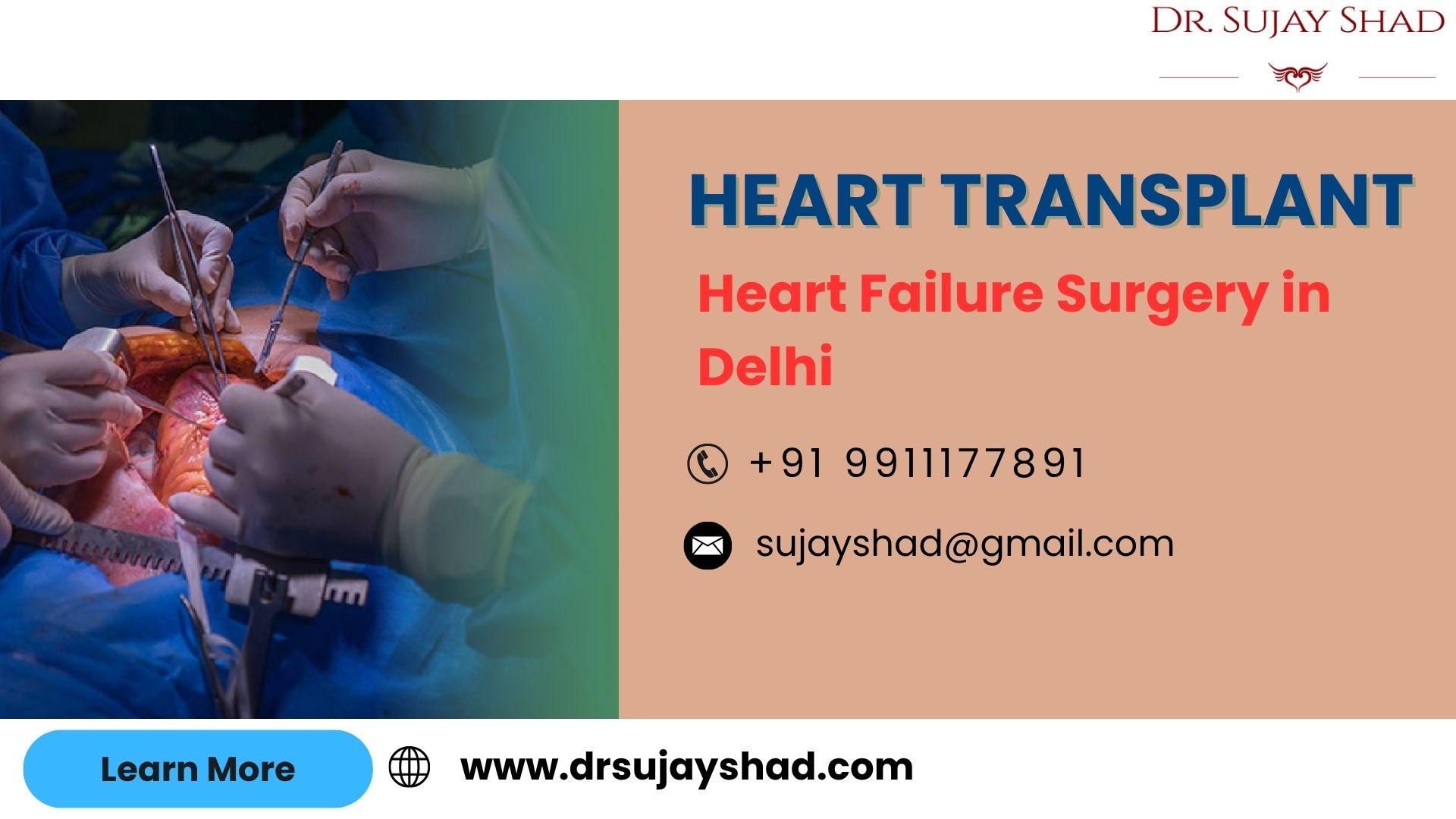8 Amazing Things to Learn About Heart Transplant Surgery

When a heart is transplanted, the patient is given a second shot at life, hence a truly amazing procedure of modern medical science. Over the years, this life-saving operation has undergone massive changes. Thus, there are continued enhancements, greater survival rates, and flexible donor criteria that allow thousands of patients to look ahead in hope every year, shares Dr. Sujay Shad, a leading surgeon for heart transplant and heart failure surgery in Delhi.
Still, the procedure is masked in many myths, and many questions remain unanswered. Being aware of what is truly involved in a heart transplant can empower and change the lives of patients, caregivers, and anyone with a curious mind.
Here are 8 things to know about heart transplantation.
1. The Heart Transplant has no Age Limits
Heart failure does not discriminate by age, and neither does transplantation. From infants born with very real congenital abnormalities of the heart to 70-or 80-year-old patients, heart transplant surgeries are performed all over the spectrum where age operates as no factor. What seems more relevant is the patient's overall health, their ability to recover, and their suitability for the surgery as an option for treatment; indeed, not the date on their birth certificate.
2. Life after a Heart Transplant Can Be Considered Normal
One of the most common misconceptions about heart transplants is that life is never everyday again. However, many heart transplant recipients indeed lead very fulfilling and active lives. They do return to work, take a holiday trip, engage in mild workouts, and even start a family, all under careful medical supervision. Recovery is slow, but if the patient follows a strict regimen of medication, regular check-ups, and lifestyle modifications, the transplanted heart can function well in a life full of activity.
3. Advanced Transport Technology Extends Life for Donor Hearts
A heart can only survive for four hours on ice; however, that is now considered an outdated concept. Hearts remain warm and beating during transport to the recipient via the Organ Care System and similar devices, thus significantly increasing the donor pool and providing stronger chances for a successful transplant. By keeping the heart warm and healthy, such new developments enable surgeons to procure hearts from farther distances for the recipient.
4. Greater Numbers of Donor Hearts Through DCD Technology
Previously, the only type of heart transplants were those from brain-dead donors. Now, with Donation after Cardiac Death, surgeons can retrieve hearts from donors whose hearts have stopped beating, giving the donor definition, the potential increase in available donors by up to 30%. Because not all transplant centers offer this advanced choice, it's a game-changer for those that do.
5. Heart Transplantation Will Only Be Considered If All Other Lines of Treatment Are Found To Have Failed.
It is never a decision that is taken lightly by the physicians. Heart transplantations are considered only when absolutely all other methods, such as medications, pacemakers, or left ventricular assist devices (LVADs), fail to relieve a patient. Before the transplantation can take place, the patient's condition must be assessed by a team of specialists to ensure that transplantation remains the last and best option.
6. The Post-Surgical Phase Requires Mental And Emotional Support.
According to the top heart surgeon in Delhi, healing is not merely a physical process. The heart transplant has a transformative effect on the mental and emotional state of an individual. There can be anxiety, depression, or survivor's guilt. It is why emotional support from family, friends, and counselors is essential for a full recovery.
7. Rejection Is Common And Hence Mostly Reversible.
Every heart transplant recipient stands at risk of rejection, whereby their immune system sees the new heart as a foreign object and attempts to attack it. However, current drugs administered for immunosuppression are pretty effective at preventing early-stage rejection and can, in some cases, lead to a complete reversal. Early detection through regular follow-ups and paying attention to your body's signs, such as breathlessness or fatigue, is crucial for effective treatment.
8. Becoming A Donor Can Save Many Lives.
An organ donation can be among the most selfless acts of humanity, giving strangers another chance to live, love, and thrive.
Trust Dr. Sujay Shad for heart transplant surgery. Discover compassionate heart care with him and get the best and most transparent heart transplant and bypass surgery cost in Delhi.
- Seo
- Art
- Causes
- Crafts
- Dance
- Drinks
- Film
- Fitness
- Food
- Giochi
- Gardening
- Health
- Home
- Literature
- Music
- Networking
- Altre informazioni
- Party
- Religion
- Shopping
- Sports
- Theater
- Wellness
- Business & Money

